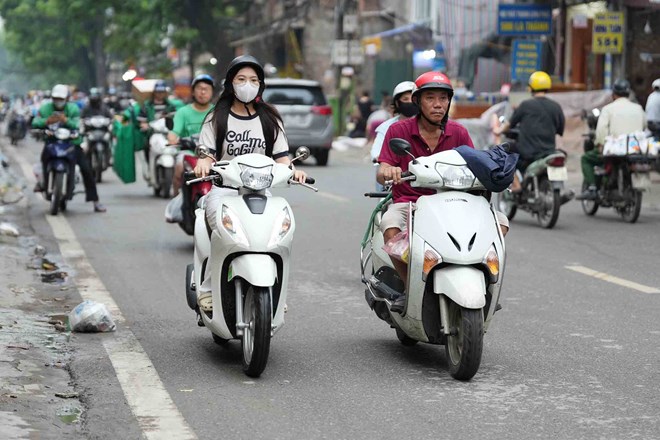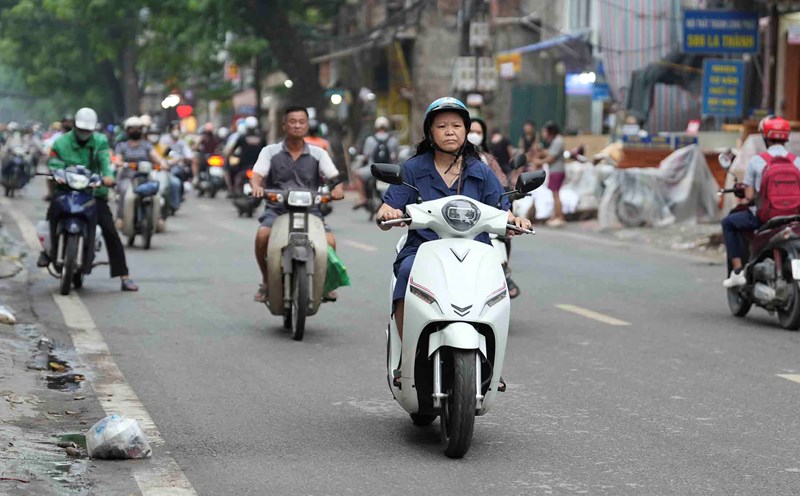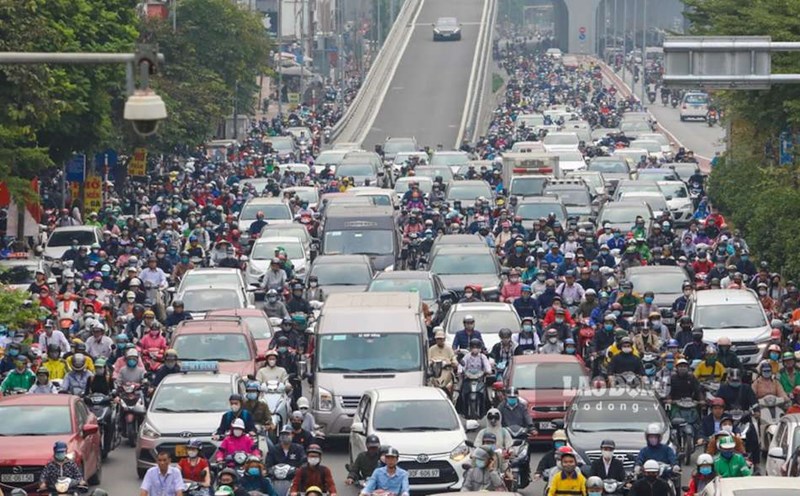After the Prime Minister's Directive 20 was issued, in addition to requiring Hanoi City to implement measures to support organizations and individuals in converting vehicles, ensuring that from July 1, 2026, there will be no more motorbikes or mopeds using fossil fuels circulating in the Ring Road 1 area, another issue that many people are concerned about is that car ownership costs may increase sharply in the coming time.
According to the directive, Hanoi needs to immediately study the increase in registration fees, registration fees, license plates for motor vehicles, specialized motorbikes, vehicle parking service prices in the central area for vehicles using fossil fuels; Develop a specific roadmap from the third quarter of 2025 and adjust it annually.
According to Lao Dong's research, currently, the registration fee for first-time registered cars in Hanoi is 12% for tourist cars (from 9 seats and under), 7.2% for pickup trucks and 2% for motorbikes (down from 5% to 2% from the beginning of July). The rate of 12% is also the highest in the country.
Thus, in case this fee increases from 12% to 15%, the rolling cost can increase by tens of millions of VND, depending on the vehicle model and the fee.

Speaking to Lao Dong Newspaper, Associate Professor, Dr. Vu Thanh Ca - senior lecturer at Hanoi University of Natural Resources and Environment - said that research from Hanoi National University shows that the amount of CO2 emissions from motorbikes accounts for 87%, while fine dust accounts for about 66% of the total amount of fine dust and emissions in Hanoi City.
Vehicles using fossil fuels are the largest source of pollution in the capital today. Therefore, the policy of reducing vehicles using gasoline and gradually switching to green, environmentally friendly vehicles is a completely correct direction.
"Currently, taxes and fees for vehicles using fuel need to be adjusted to increase, especially for cars. At that time, people will proactively switch to vehicles using clean fuel. This is a much more sustainable economic solution. Of course, the adjustment of tax and fees needs to be carefully calculated so that the poor can still afford to pay, avoiding the situation of someone being left behind", Associate Professor, Dr. Vu Thanh Ca commented.
Associate Professor, Dr. Vu Thanh Ca said that Hanoi City needs to survey the number of existing gasoline motorbikes, classify them according to the years and status of use to build a suitable support package.
At the same time, it is necessary to synchronously deploy solutions, in which the most effective and practical solution is to cooperate with private enterprises to support people in the transformation process.
Accordingly, there should be a subsidy policy, support the cost of replacing electric motorbike batteries, and at the same time invest in building separate battery charging areas, fully meeting the requirements of fire prevention and fighting, technical safety and ensuring a reasonable distance between vehicles. In the process of implementing this policy, the city needs to have a comprehensive assessment of each specific stage, avoiding implementing jostling, causing great disruption in people's lives.
From another perspective, Dr. Tran Van Mieu - Head of the Environmental Communication Department, Vietnam Association for Conservation of Nature and Environment - said that policies need to be built on the principles of fairness, transparency and highics.
The current Capital Law allows the Hanoi People's Committee to submit to the City People's Council on increasing registration fees for fossil fuel vehicles. However, according to Mr. Mieu, this needs to be implemented very carefully, on the basis of careful research to ensure that policies are issued correctly and to the right beneficiaries. Because in just 12 months, Directive 20 of the Prime Minister will be officially applied.











